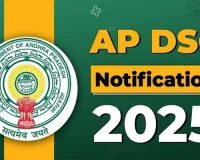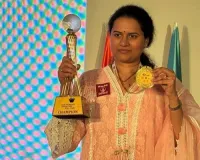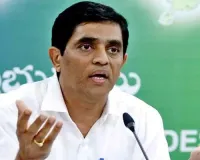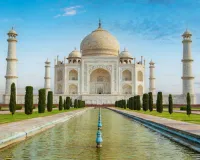Upholding constitutional ethos hallmark of CJI Sanjiv Khanna tenure
CJI Sanjiv Khanna tenure

Chief Justice of India (CJI) Sanjiv Khanna on Tuesday concluded a brief yet eventful six-month long tenure, leaving an indelible mark on the judicial landscape with
Chief Justice of India (CJI) Sanjiv Khanna on Tuesday concluded a brief yet eventful six-month long tenure, leaving an indelible mark on the judicial landscape with decisions that upheld secularism and battled corruption in public employment.
Some say he lived up to the expectations and the legacy of his illustrious uncle Justice H R Khanna, who had penned his lone dissent in the ADM Jabalpur case during the Emergency.
Justice Khanna, also as a maverick, took some unprecedented decisions.
Some of his directives had the Supreme Court judges disclose their assets whereas the row over the discovery of cash from a sitting judge's official residence paved way for inquiry. His other unheard of decision to open to public collegium records on judge's appointments took everyone by surprise.
A few days before he demitted office, Justice Khanna brought to an end the political debates that ensued after BJP MP Nishikant Dubey held the CJI responsible for "civil wars" in the country.
In a befitting reply, the CJI said the Constitution was most supreme.
While the BJP lawmaker was spared of contempt action, CJI Khanna schooled the lawmaker, who was accused of scandalising and lowering the SC's authority.
"It is the Constitution that is higher than all of us. It is the Constitution which imposes limits and restrictions on the powers vested in the three organs. The power of judicial review is conferred by the Constitution on the judiciary," he said.
CJI Khanna, who took oath as the 51st CJI on November 11, 2024, when faced with legal challenges and political headwinds rose to defend constitutional values.
He delivered a landmark verdict just after becoming the CJI and trashed the pleas challenging the 1976 amendment to the Constitution adding terms "socialist", "secular" and "integrity" to the preamble, observing Parliament's amending power extended to Preamble too.
He said terms like "socialist" and "secular" were "integral to the Preamble making the "prayers particularly questionable".
Upholding the policy of zero tolerance towards corruption in public employment, a bench he led annulled appointments of over 25,000 teachers and non-teaching staff in West Bengal schools over irregularities in the selection process.
In a humane approach to the legal quagmire, he took note of the state's plea of an adverse impact on schools due to the mass annulment and permitted untainted teachers to continue work till December 31, 2025 with a caveat to complete fresh recruitment in the meantime.
Some decisions brought much-needed calm in otherwise charged situations, particularly when several subordinate courts directed surveys of religious places in disregard of the Places of Worship Act, 1991.
In December 2024, a bench he led barred new cases and halted coercive actions related to religious sites, effectively containing situations before they spiralled.
The CJI heard the challenge to Waqf Amendment Act with his bench's observations and questions underlining the key legal shifts from the erstwhile law.
The case saw Centre filing of a over 1,000-page counter affidavit to the pleas.
Following extensive hearings, CJI Khanna later marked the matter to his successor Justice B R Gavai's bench.
Heading a five-judge Constitution bench, CJI Khanna's bench in a majority verdict held courts can modify arbitral awards under the 1996 law on arbitration and conciliation under certain circumstances.
The cash discovery row involving Justice Varma grabbed headlines and brickbats in equal measure. The issue brought into focus the topic of judicial corruption, often talked in hushed tones in legal circles.
With judiciary coming under immense scrutiny, the CJI maintained composure and dealt with the situation in a systematic way.
He first ordered a preliminary probe by Delhi High Court Chief Justice D K Upadhyaya.
Later, judicial work was withdrawn from Justice Varma in the Delhi High Court, followed by his transfer to the Allahabad High Court sans judicial work.
After an in-house inquiry panel indicted the judge, the CJI nudged him to resign and later wrote to President Droupadi Murmu and Prime Minister Narendra Modi as Justice Varma refused to resign.
The decision to put all the details relating to the initial inquiry in the public domain was unprecedented.
Administratively, the CJI, after assuming the office, said no to oral submissions for urgent listing and hearing of cases and asked lawyers to either send emails or written letters.
Not once did he breach the practice by allowing senior lawyers to mention urgent matters and get them listed.
Another step towards judicial transparency came when the CJI mandated public disclosure of assets of Supreme Court judges and opened the collegium's records for public scrutiny.
Under his leadership, 21 of 33 judges declared their assets publicly, and the collegium processed over 100 proposals, including two Supreme Court appointments.
The communal utterances of sitting Allahabad High Court judge Justice Shekhar Yadav didn't go down well with the judiciary. The CJI-led collegium summoned the judge to Delhi and reprimanded him.
The CJI also authored judgments strengthening protection against arbitrary arrests, particularly under economic laws like the GST Act and Customs Act.
His ruling in the Radhika Aggarwal case underscored coercion cannot be a basis for tax recovery, offering a critical check on abuse of executive power.
He also chastised the UP Police for weaponising FIRs in civil disputes, calling it a "complete breakdown of the rule of law".
Before becoming the CJI, Justice Khanna was part of key decisions such as sanctity of EVMs, abrogation of Article 370 and scrapping of the electoral bonds scheme.
A third-generation lawyer before being elevated to the Delhi High Court, Justice Khanna focused on reducing pendency and speeding up justice delivery.
Justice Khanna was born on May 14, 1960, and studied law at the Campus Law Centre, Delhi University, before enrolling as an advocate with the Bar Council of Delhi in 1983.
As a lawyer, he practised in the district courts at the Tis Hazari complex and subsequently moved his practice to the Delhi High Court.
He had a long tenure as the senior standing counsel for the Income Tax Department and was appointed the standing counsel (civil) for the National Capital Territory of Delhi in 2004.
Justice Khanna also appeared and argued several criminal cases at the Delhi High Court as an additional public prosecutor and as an amicus curiae.
Justice Khanna was also the executive chairman of the National Legal Service Authority.
His uncle, Justice H R Khanna, during his judgeship, made waves when he resigned in 1976. He had penned a dissenting verdict in the infamous ADM Jabalpur case during the Emergency.
The majority judgment of a Constitution bench verdict upholding the abrogation of fundamental rights during the Emergency was considered a dark day in the history of the judiciary.
The senior Khanna declared the move unconstitutional and against the rule of law. He paid the price when the erstwhile government at the Centre superseded him with Justice M H Beg, the next CJI.
Justice H R Khanna was also part of the landmark verdict propounding the basic structure doctrine in the Kesavananda Bharati case of 1973.









